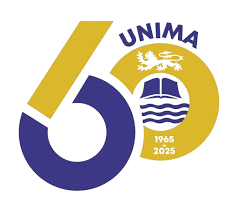SHAKING HANDS WITH FOLKLORE GIANTS
Travelling to Chileka to engage with a renowned Austria-based Malawian anthropologist and ethnomusicologist Dr. Moya Malamusi was at the heart of an educational trip undertaken by the third-year Malawian Oral Literature class from the University of Malawi on 4th May, 2024. The students wanted to see and hear from a man they had heard so much about.
In the company of their class lecturer, Prof. Ken Lipenga, the students travelled to Singano village in Chileka, to the host’s residence. Upon arrival, the students were amazed to witness the efforts that he has made over the years in researching on Malawian music and folklore. Dr. Malamusi took the group on a tour of the Jacaranda Museum of Ethnographic Objects, which bears the researcher’s unique personal collection of traditional musical instruments, each having its own story. Over the years, he has collected drums, ulimba, zisekese, flutes, and many other instruments from different parts of Africa. He also talked about the process of undertaking research in oral literature, and displayed his archives of research notes and recordings.
As part of the tour, Dr. Malamusi also played a video of the Kachamba Brothers (with whom he was acquainted in the second half of the 1900s) songs and a documentary recorded by his associate, Prof. Gerhard Kubik, an academic at the University of Vienna.
On their return, the students had the opportunity to engage with two Malawian writers who have used folklore in their works. The first was with Catherine Howse-Chisale, a poet and writer of children’s books. She recited two stories, taking the students through the memories of sitting with their grandmothers, listening to the tales. At the end, they engaged in a discussion of oral narratives in Malawi, while feasting on roasted sweet potatoes.
The last stop on the trip was at the residence of Dr. Ken Lipenga, an esteemed Malawian writer. Welcoming the students to his home, he narrated to them various myths involving Namasempwani, a spirit on Mulanje Mountain. In his imagination, he resurrects this benevolent spirit famous around Mulanje, Phalombe, and Thyolo. Through mythopoeia, he imagines the spirit as a benevolent being, responsible for all the rivers emanating from Mulanje Mountain, as well as the mysterious occurrences associated with the mountain. He also responded to students’ queries regarding Mulanje Mountain as an inspiration for his most famous short story, “Waiting for a turn”. After an inspiring talk, Dr. Lipenga gifted each one of the students with a copy of Old Kongoro's Kalabash Tales, and oranges grown from his orchard.




